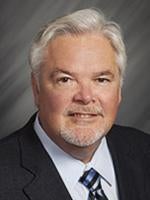Most healthcare facilities in the U.S. will be required – in less than 60 days – to ensure their employees and many others who enter their premises are vaccinated to minimize COVID-19 transmission under newly published regulations.
The Centers for Medicare & Medicaid Services (CMS) interim final rule, published and effective Nov. 5, 2021, mandates the vaccination of persons employed by certain enumerated healthcare providers and suppliers, all of which are subject to Medicare or Medicaid “conditions of participation, conditions of coverage, or requirements for participation” (the Vax List). However, the rule also suggests a much broader range of non-employees connected to the facility must also be vaccinated or seek an exemption.
The rule requires facilities on the Vax List to generally minimize the risk of COVID-19 transmission to at-risk individuals by immediately implementing a process or plan to vaccinate all eligible employees and potentially others. All eligible employees at a minimum must be fully vaccinated by Jan. 4, 2022.
The regulatory guidance hints that the reach of the Vax List will continue to grow. CMS stated in the rule that “we strongly encourage facilities, when the opportunity exists and resources allow, to facilitate the vaccination of all individuals who provide services infrequently and are not otherwise subject to the requirements of” the rule.
The providers affected are:
-
Ambulatory Surgery Centers
-
Community Mental Health Centers
-
Comprehensive Outpatient Rehabilitation Facilities
-
Critical Access Hospitals
-
End-Stage Renal 2 Disease Facilities
-
Federally Qualified Health Centers
-
Home Health Agencies
-
Home Infusion Therapy Suppliers
-
Hospices
-
Hospitals
-
Intermediate Care Facilities for Individuals With Intellectual Disabilities
-
Long-Term Care facilities
-
Outpatient Physical Therapy and Speech-Language Pathology Providers (Clinics, Rehabilitation Agencies, Public Health Agencies)
-
Programs for All-Inclusive Care for the Elderly Organizations (PACE)
-
Psychiatric Residential Treatment Facilities
-
Rural Health Clinics
Facility Requirements
There are three basic requirements that a facility on the Vax List must complete:
1. The provider must develop a process or plan for vaccinating all eligible staff. CMS considers a person to be fully vaccinated if it has been two weeks or more since they completed a primary vaccination series for COVID-19.
To complete a primary vaccination series, a person must either receive a single-dose vaccine or receive all required doses of a multi-dose vaccine. For purposes of compliance with the rule, however, a person is considered fully vaccinated after the final dose, even if a 14-day period has not passed.
2. CMS requires providers to allow for exemptions in accordance with federal law, thus the provider must develop a process or plan for accommodating those who are exempt. Federal law permits medical and religious exemptions. Medical exemptions are those recognized medical conditions for which vaccines should not be used because it may be harmful to the person. The rule specifies that providers need documentation that contain “all information specifying why the COVID-19 vaccines are clinically contraindicated for the staff member,” a statement by the “authenticating practitioner” who is recommending that the staff member be exempted, and a signed explanation by a physician agreeing with that conclusion. There is less precision in religion exemptions for people who hold beliefs that are inconsistent with the use of this vaccine.
3. The provider must develop a process or plan for tracking and documenting staff vaccinations, as well as for those staff granted an exemption. Importantly, CMS noted that it “decided to establish minimal compliance burdens for both categories of exemptions” and created “relaxed standards.” It states that more “evidentiary standards” for proving a medical or religious exemption could be developed if “an abuse problem arise(s) on a significant scale” in the future. To accommodate exempted staff, a provider on the Vax List must develop a process for implementing precautions that minimize the risk of COVID-19 transmission , such as implementing mandatory weekly testing, physical distancing, or mandatory masking.
First Dose Required by Dec. 5
The vaccine requirement is broken into two phases:
Phase 1: The facilities must have a process or plan in place by Dec. 5, 2021. Additionally, the process or plan for vaccinating staff must ensure that all eligible staff receive their first dose or one-dose vaccine by Dec. 5.
Phase 2: All staff must have received all shots for full vaccination status by Jan. 4, 2022.
The vaccination requirements apply to all eligible staff working for a provider, regardless of clinical responsibility and to staff who perform duties offsite and to individuals who enter into a CMS regulated facility. The requirement does not apply to full-time remote or teleworkers.
Exempt – and Non-Exempt – Healthcare and Medical Entities
Physician practices are not on the Vax List. In fact, the rule states that it does not “directly apply” to other entities, such as physician offices, which are not regulated by CMS but instead by state licensing laws.
However, the reach of the Vax List applies to physicians in independent practice who hold hospital privileges, because hospitals will require they provide proof of vaccination if they wish to continue to freely exercise those privileges. The same is true for other office-based practitioners with privileges in or whose work requires them to enter any of these facilities.
The reach of the mandate is broad and includes facility employees, licensed practitioners, students, trainees, and volunteers, from greeters to board members. Additionally, the rule also includes individuals who provide care, treatment, or other services for the facility and/or its patients under contract or other arrangements. The vaccination requirements also apply to staff who perform duties offsite (e.g. home health, home infusion therapy, etc.) and to individuals who enter into a CMS-regulated facility. Even construction crew workers with access to common areas (such as restrooms and cafeterias) are expressly mentioned in the rule.




 />i
/>i
